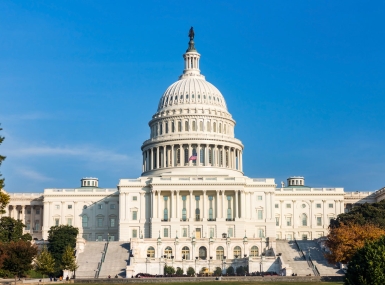House resolution disapproves BLM Planning 2.0 rule; next stop, the Senate
Upcoming Events
Related News
On Feb. 8, the House of Representatives passed H.J. Res. 44, disapproving of the Bureau of Land Management’s (BLM) Planning 2.0 rule, by a vote of 234–186. The legislation begins the process of rolling-back Planning 2.0 under procedures outlined in the Congressional Review Act (CRA).
Legislation disapproving Planning 2.0 is supported by over 60 groups representing a broad cross-section of public lands stakeholders. On Jan. 26, NACo joined with 23 state associations of counties, national, regional and state level organizations representing public lands stakeholders in sending a letter urging disapproval of the Planning 2.0 Rule.
In December of 2016, the BLM released its final Resource Management Planning rule, or Planning 2.0. Throughout the rulemaking process, counties expressed concern that the rule, as written, could dilute county input into land management decisions and hinder local government consultation and collaboration with the BLM.
As co-regulators and intergovernmental partners in the BLM’s land use management mission, counties have a significant interest in providing BLM with the most meaningful information and analysis possible to help craft BLM regulations and land use and resource management plans.
BLM’s Planning 2.0 rule was published on Dec. 13, 2016 and went into effect on Jan. 11. Planning 2.0 establishes the processes under which the BLM will develop its Resource Management Plans (RMPs). RMPs set parameters to define approved uses and actions across over 245 million acres of surface land and over 700 million acres of subsurface minerals currently under BLM management. The land use planning decisions made under Planning 2.0 could have a significant impact on local economies and BLM lands alike.
CRA procedures empower Congress to advance legislation rolling back federal rules like Planning 2.0, providing another opportunity for BLM, counties and public lands stakeholders to work together to improve planning regulations and ensure robust coordination with local governments. CRA legislation must pass both chambers of Congress and be signed by the president. Following passage in the House, H.J. Res. 44 is now pending further consideration in the Senate.
NACo has been engaged throughout the Planning 2.0 process to ensure local government involvement is at the forefront of BLM resource management planning and that local governments were given the time necessary to analyze the implications of the substantive regulatory changes presented in the Planning 2.0 rule.
After securing an extension of the initial comment period, NACo submitted comments to BLM on the proposed rule.NACo has also hosted numerous webinars and forums with BLM staff and county officials to provide other opportunities for the county voice to be heard and will continue to work with counties and the BLM to ensure local government engagement is at the forefront of BLM resource management planning.
Attachments
Related News

Secure Rural Schools Reauthorization Act of 2025 signed into law in victory for counties
On December 18, 2025, President Trump signed the Secure Rural Schools Reauthorization Act of 2025 (P.L. 119-58) into law. The reauthorization of the SRS program is a major victory for counties and ensures that timber-dependent counties will receive critical funding to maintain essential local government services such as public education and transportation infrastructure.

DOI announces creation of new U.S. Wildland Fire Service
On September 15, the U.S. Departments of the Interior (DOI) and Agriculture (USDA) announced major joint directives to change how the agencies will coordinate and provide wildfire response, including the creation of a new U.S. Wildland Fire Service within Interior.

U.S. House of Representatives passes SPEED Act and other permitting reform bills
On December 18, the U.S. House of Representatives passed the SPEED Act (H.R. 4776). The SPEED Act would strengthen county involvement in decision-making and make needed commonsense reforms to the federal environmental review process.